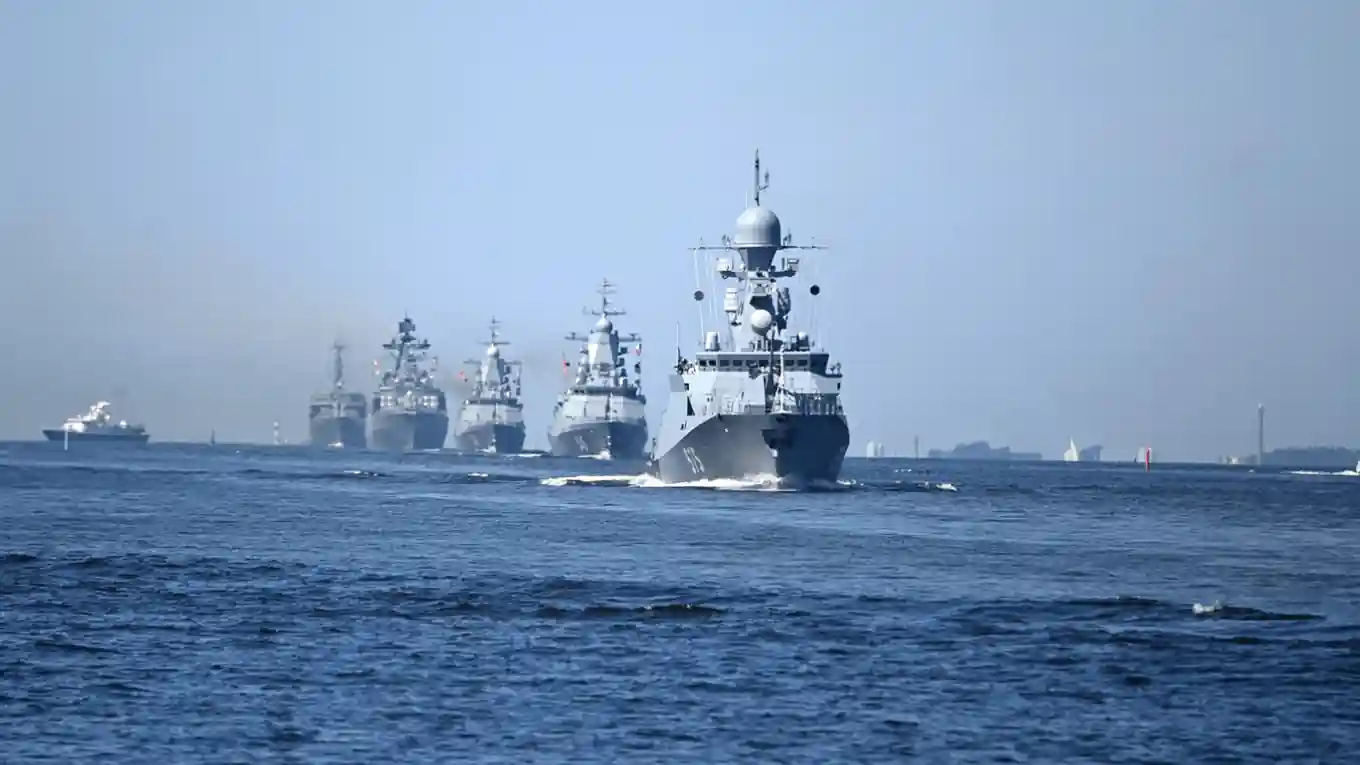In a move signaling escalating geopolitical tensions, Russian warships are reportedly en route to the Caribbean Sea for military exercises this summer, according to unnamed US officials cited by Reuters and the Associated Press.
This deployment is perceived as a direct response to US support for Ukraine, which has been a focal point of friction between Washington and Moscow.
The exact number of vessels remains unspecified, but sources indicate that a “handful” of Russian warships and support vessels are involved. These ships are expected to make port calls in Cuba and Venezuela, two nations with long-standing ties to Russia.
The presence of Russian naval forces in these strategic locations near US waters underscores the increasing strain on U.S.-Russia relations.
The Associated Press reported that Moscow has not formally notified Washington about these upcoming drills. This absence of communication is seen as a deviation from standard military protocol, which typically involves advance notifications to avoid misinterpretations or unintended escalations.
Reuters described the situation as “heightened naval and air activity near the United States,” raising concerns over potential confrontations or miscalculations.
President Vladimir Putin’s recent rhetoric further amplifies the seriousness of the situation. He has threatened to arm countries capable of targeting Western interests in retaliation to Western nations supplying Ukraine with weapons used against Russian forces.
This stark warning is part of a broader strategy by Russia to assert its military presence globally, particularly following significant naval losses in the Black Sea amid its ongoing conflict in Ukraine.
According to the unnamed US officials, the planned drills in the Caribbean are part of routine exercises, emphasizing that nations worldwide are entitled to conduct military operations in international waters.
Nevertheless, the timing and location of these drills are particularly provocative given the current geopolitical climate.
Russia’s Defense Ministry has yet to publicly confirm the specifics of these naval exercises. However, a US official noted that these activities would culminate in a global Russian naval exercise set for this fall, aiming to project Russian naval power on an international scale.
This development highlights Russia’s strategic pivot to showcase its naval capabilities beyond the immediate theater of the Ukraine conflict.
By conducting exercises in the Caribbean, Russia seeks to remind the United States and its allies of its reach and influence while simultaneously reassuring its partners, Cuba and Venezuela, of its continued support.
As these exercises loom, the international community watches closely. The potential for increased U.S.-Russian encounters in international waters necessitates careful diplomatic and military communication to prevent unintended escalation.
The US has already ramped up its monitoring activities, tracking the movements of Russian vessels closely.
This scenario is a stark reminder of the Cold War era’s maritime standoffs, where naval power was a key element of global strategic balance.
The unfolding events in the Caribbean could significantly impact the already fragile relations between Russia and the West, with potential ramifications for global security dynamics.
The situation remains fluid, with the international community awaiting further official announcements and developments. As both sides navigate this delicate phase, the importance of strategic communication and measured responses cannot be overstated.
